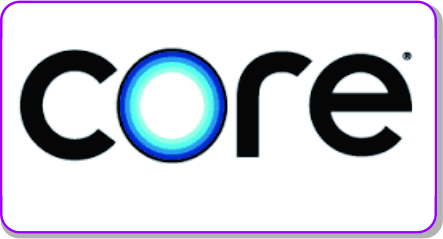The Influence of Self-Efficacy in Mediated Individual Characteristics on Leadership Learning Performance in PT X
DOI:
https://doi.org/10.30983/educative.v6i2.5158Keywords:
Karakteristik Individu, Performansi pembelajaranAbstract
The achievement of learning performance can create benefits for a company both in increasing employee competence and company productivity. The cost spent, however, is usually not proportional to the graduation rate and returns on the company. Self-efficacy is a performance predictor. Individual characteristics have a strong role in the effectiveness of learning. This research aims to test the role of individual characteristics in  leadership learning performance with self-efficacy as a mediator variable. The data in this study are secondary data owned by PT X. This data were processed by parallel mediation analysis model using Macro PROCESS and SPSS software. The results showed that self-efficacy is able to mediate the role of individual characteristics in leadership learning performance. This research found that self-efficacy and continuous learning ability were able to partially mediate the role of individual characteristics in leadership learning performance. Thus, by adding indirect effect of mediator variable, it can further enhance the role of individual characteristics in leadership learning performance.
Tercapainya kinerja pembelajaran dapat memberikan manfaat bagi perusahaan baik dalam peningkatan kompetensi karyawan maupun produktivitas perusahaan. Biaya yang dikeluarkan, bagaimanapun, biasanya tidak sebanding dengan tingkat kelulusan dan pengembalian perusahaan. Self-efficacy adalah prediktor kinerja. Karakteristik individu memiliki peran yang kuat dalam efektivitas pembelajaran. Penelitian ini bertujuan untuk menguji peran karakteristik individu dalam kinerja pembelajaran kepemimpinan dengan efikasi diri sebagai variabel mediator. Data dalam penelitian ini adalah data sekunder milik PT X. Data ini diolah dengan model analisis mediasi paralel menggunakan software Macro PROCESS dan SPSS. Hasil penelitian menunjukkan bahwa efikasi diri mampu memediasi peran karakteristik individu dalam kinerja pembelajaran kepemimpinan. Penelitian ini menemukan bahwa efikasi diri dan kemampuan belajar berkelanjutan secara parsial mampu memediasi peran karakteristik individu dalam kinerja pembelajaran kepemimpinan. Dengan demikian, dengan menambahkan pengaruh tidak langsung dari variabel mediator dapat lebih meningkatkan peran karakteristik individu dalam kinerja pembelajaran kepemimpinan.
Â
References
Book
Ajzen, I. (2005). Attitude, personality and behavior. McGraw-Hill Education (UK).
Ajzen, I. (2005). Attitude, personality and behavior. McGraw-Hill Education (UK).
Anthony, W. P., Perrewe, P. L., & Kacmar, K. M. (1999). Human resource management: A strategic approach. Harcourt Brace College Publishers.
Azwar, S. (2016). Penyusunan Skala Psikologi Edisi 2. Yogyakarta: Pustaka Pelajar.
Baharuddin, B., & Wahyuni, E. N. (2015). Teori Belajar dan Pembelajaran. Ar-Ruzz Media, Yogyakarta.
Baldwin, T. T., & Ford, J. K. (1988). Transfer of Training: a Review and Directions for Future Research. Personnel Psychology, 41(1), 63–105. https://doi.org/10.1111/j.1744-6570.1988.tb00632.x
Journal
Ballesteros-RodrÃguez, J. L., de Saá-Pérez, P., & DomÃnguez-Falcón, C. (2012). The role of organizational culture and HRM on training success: Evidence from the Canarian restaurant industry. International Journal of Human Resource Management, 23(15), 3225–3242. https://doi.org/10.1080/09585192.2011.637071
Bandura, A. (1977). self-efficacy: Toward a Unifying Theory of Behavioral Change. Psychological Review, 84(2), 1–312. https://doi.org/10.1007/978-3-319-75361-4
Bandura, A. (2010). Self-efficacy -Bandura. The Corsini Encyclopedia of Psychology, 1–3. https://doi.org/10, 9780470479216.
Baron, R. ., & Byrne. (1991). Social Psychology. Boston: Simon and Schuster.
Blume, B. D., Ford, J. K., Baldwin, T. T., & Huang, J. L. (2010). Transfer of training: A meta-analytic review. Journal of Management, 36(4), 1065–1105. https://doi.org/10.1177/0149206309352880
Borman, W. C., Penner, L. A., Allen, T. D., & Motowidlo, S. J. (2001). Personality Predictors of Citizenship Performance. International Journal of Selection and Assessment,9(1–2),52–69. https://doi.org/10.1111/1468-2389.00163
Brandt, T., & Laiho, M. (2013). Gender and personality in transformational leadership context: An examination of leader and subordinate perspectives. Leadership and Organization Development Journal, 34(1), 44–66.https://doi.org/10.1108/01437731311289965
Burke, L. A., & Baldwin, T. T. (1999). Workforce Training Transfer: A Study of the Effect of Relapse Prevention Training and Transfer Climate. 38(3), 227–241.
Burke, L. A., & Hutchins, H. M. (2007). Training transfer: An integrative literature review. Human Resource Development Review, 6(3),263–296. https://doi.org/10.1177/1534484307303035
Chiaburu, D. S., & Marinova, S. V. (2005). What predicts skill transfer? An exploratory study of goal orientation, training self-efficacy and organizational supports. International Journal of Training and Development, 9(2), 110–123. https://doi.org/10.1111/j.1468-2419.2005.00225.x
Creswell, J. W. (2013). Research Design_ Qualitative, Quantitative, and Mixed Method Approaches-SAGE Publications (p. 273).
Cummings, T. (2008). Organization Development and Change. In Dynamics of Organizational Change and Learning. https://doi.org/10.1002/9780470753408.ch2
De Feyter, T., Caers, R., Vigna, C., & Berings, D. (2012). Unraveling the impact of the Big Five personality traits on academic performance: The moderating and mediating effects of self-efficacy and academic motivation. Learning and Individual Differences, 22(4), 439–448. https://doi.org/10.1016/j.lindif.2012.03.013
Dessler, G. (2017). Human Resource Management. In Pearson.
Driskell, J. E., Hogan, J., Salas, E., & Hoskin, B. (1994). Cognitive and Personality Predictors of Training Performance. Military Psychology, 6(1), 31–46. https://doi.org/10.1207/s15327876mp0601_2
Faria, A. J. (2001). The changing nature of business simulation/ gaming research: A brief history. Simulation and Gaming, 32(1), 97–110. https://doi.org/10.1177/104687810103200108
Galla, B. M., & Wood, J. J. (2012). Emotional self-efficacy moderates anxiety-related impairments in math performance in elementary school-age youth. Personality and Individual Differences, 52(2), 118–122. https://doi.org/10.1016/j.paid.2011.09.012
Hair Jr, J. F., Black, W. C., Babin, B. J., & Anderson, R. E. (2019). Multivariate Data Analysis (Eight Edit). Cengage Learning, EMEA. https://doi.org/10.1002/9781119409137.ch4
Hamalik, O. (2008). Kurikulum dan Pembelajaran. PT. Bumi Aksara.
Jackson, M. (2017). The role of personality aspects and general mental ability for predicting training performance in culinary students. Illinois Institute of Technology.
Jerusalem, M., & Schwarzer, R. (1995). Generalized self-efficacy scale. Measures in health psychology: A user’s portofolio. Causal and Control Beliefs.
John, O. P., Robins, R. W., & Pervin, L. A. (2010). Handbook of personality: Theory And Research. Guilford Press.
Kirkpatrick, D. L. (1996). Evaluating Training prgrams: The Four Level. San Fransisco: Berrett-Koehler Publisher, Inc.
Kontoghiorghes, C. (2004). A Systemic Perspective of Training Transfer. Transfer of Learning in Organizations, 9783319020, 1–170. https://doi.org/10.1007/978-3-319-02093-8
Martin, B. O., Kolomitro, K., & Lam, T. C. M. (2014). Training Methods: A Review and Analysis. Human Resource Development Review, 13(1), 11–35. https://doi.org/10.1177/1534484313497947
Mccrae, R. R., & Costa, P. T. (1999). "The five-factor theory of personality. Handbook of Personality, 2nd edn. https://scholar.google.com/scholar?hl=ca&as_sdt=0%2C5&q=%22The+five-factor+theory+of+personality%22+2008&btnG=
Mount, M. K., Barrick, M. R., & Stewart, G. L. (1998). Five-Factor Model of personality and Performance in Jobs Involving Interpersonal Interactions. Human Performance, 11(2–3), 145–165. https://doi.org/10.1080/08959285.1998.9668029
Noe, R. A., Hollenbeck, J. R., Gerhart, B. A., & Wright, P. M. (2016). Fundamental of Human Resource Management : Gaining A Competive Advantage.
Paglis, L. L., & Green, S. G. (2002). Leadership self-efficacy and managers’ motivation for leading change. Journal of Organizational Behavior, 30(March 2001), 839–862.
Poropat, A. E. (2009). A Meta-Analysis of the Five-Factor Model of Personality and Academic Performance. Psychological Bulletin, 135(2), 322–338. https://doi.org/10.1037/a0014996
Rachmahana, R. S. (2008). Peran Efikasi Diri Terhadap Prestasi Dan Performansi : Meta Analisis. Psikologika: Jurnal Pemikiran Dan Penelitian Psikologi, 13(25), 15–24. https://doi.org/10.20885/psikologika.vol13.iss25.art2
Robbins, S. P. (1990). Organization theory : structure, design, and applications.
Salgado, J. F. (1997). The five factor model of personality and job performance in the European Community. Journal of Applied Psychology, 82(1), 30–43. https://doi.org/10.1037/0021-9010.82.1.30
Schwarzer, R., Mueller, J., & Greenglass, E. (1999). Assessment of perceived general self-efficacy on the internet: Data collection in cyberspace. Anxiety, Stress and Coping, 12(2), 145–161. https://doi.org/10.1080/10615809908248327
Sonnentag, S. (2002). Psychological management of individual performance. Wiley Handbooks in the psychology of management in organizations.
Stajkovic, A. D., & Luthans, F. (1998). Self-efficacy and work-related performance: A meta-analysis.: Carlos Albizu Virtual Library. Psychological Bulletin, 124(2), 240–261. https://eds-a-ebscohost com.ucapr.cobimet3.org/eds/pdfviewer/pdfviewer?vid=1&sid=2e30ea97-2349-4465-8594-36b74b5c2e46%40sessionmgr4010
Sufirmansyah. (2015). Pengaruh efikasi diri terhadap prestasi belajar mahasiswa pascasarjana. Didaktika Religia, 3(2), 133–156.
Tett, R. P., & Burnett, D. D. (2003). A personality trait-based interactionist model of job performance. Journal of Applied Psychology, 88(3), 500–517. https://doi.org/10.1037/0021-9010.88.3.500
Ulya, N. M. (2017). Pengaruh Metode Pembelajaran dan Tipe Kepribadian Terhadap Hasil Belajar Bahasa Arab (Studi Eksperimen Pada MAN 1 Semarang). Jurnal Pendidikan Islam, 10(1), 1. https://doi.org/10.21580/nw.2016.10.1.867
Zaitouni, M., Harraf, A., & Kisswani, A. M. (2020). Resources for development: The relationship of HRM practices and continuous learning culture with training success. International Journal of Human Resources Development and Management, 20(1), 75–92. https://doi.org/10.1504/IJHRDM.2020.105099
Ziegler, M., Bensch, D., Maaß, U., Schult, V., Vogel, M., & Bühner, M. (2014). Big Five facets as predictor of job training performance: The role of specific job demands. Learning and Individual Differences, 29, 1–7. https://doi.org/10.1016/j.lindif.2013.10.008
Downloads
Additional Files
Submitted
Accepted
Published
Issue
Section
License
Authors who publish with this journal agree to the following terms:
1. Authors retain copyright and grant the journal right of first publication with the work simultaneously licensed under a Creative Commons Attribution License that allows others to share the work with an acknowledgment of the work's authorship and initial publication in this journal.
2. Authors are able to enter into separate, additional contractual arrangements for the non-exclusive distribution of the journal's published version of the work (e.g., post it to an institutional repository or publish it in a book), with an acknowledgment of its initial publication in this journal.
3. Authors are permitted and encouraged to post their work online (e.g., in institutional repositories or on their website) prior to and during the submission process, as it can lead to productive exchanges, as well as earlier and greater citation of published work (See The Effect of Open Access).


















 Â
 







